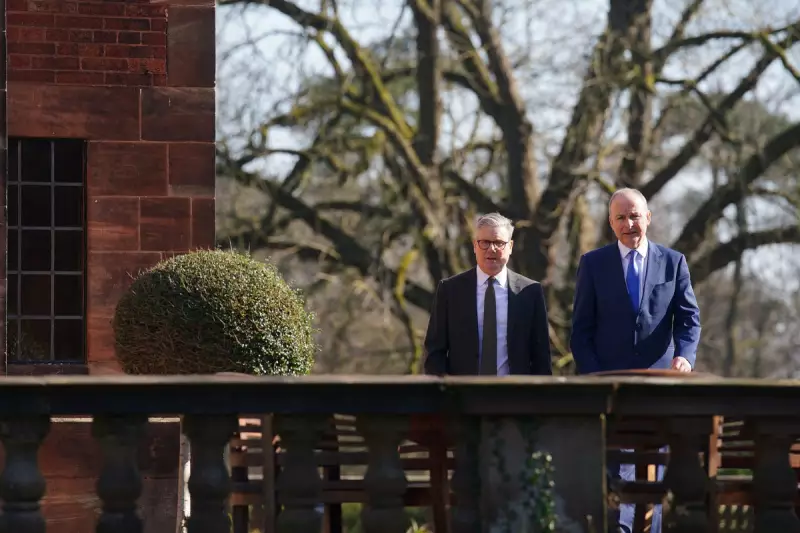
Labour leader Sir Keir Starmer's diplomatic mission to Dublin was dramatically overshadowed by a mounting row over his stance on the Israel-Hamas conflict, during a pivotal meeting with Irish Taoiseach Micheál Martin.
The talks, intended to fortify British-Irish relations and discuss the delicate post-Brexit arrangements in Northern Ireland, were instead dominated by the escalating crisis in Gaza. This follows intense criticism of Starmer's earlier comments on the conflict, which sparked a significant rebellion within his own party and led to the resignation of several Labour councillors.
A Contentious Position
Sir Keir found himself under direct fire for an interview on LBC where he appeared to suggest Israel had a right to withhold power and water from Gaza—a stance that would contravene international law. Despite his team's subsequent clarifications, the political fallout has been severe.
The controversy has not only caused internal Labour strife but has now escalated to the international stage, putting a strain on the crucial UK-Ireland relationship at a sensitive time.
Rebuilding Bridges Amidst the Storm
The meeting with Taoiseach Martin was a key part of Starmer's strategy to reset UK-Ireland relations, which have been tested by the complexities of the Brexit deal and the Northern Ireland Protocol. Both leaders emphasised the importance of the Good Friday Agreement and stable devolved government in Stormont.
"We had a very good discussion," Martin stated after the meeting, highlighting their shared commitment to seeing the Northern Ireland Executive restored. However, the shadow of the Gaza conflict loomed large, revealing the potential for foreign policy to disrupt delicate diplomatic engagements.
The Path Ahead
This incident underscores the immense challenges Starmer faces in balancing domestic party management with international diplomacy. As a potential future Prime Minister, his every word is scrutinised, and missteps can have immediate and far-reaching consequences.
The Dublin visit, while cordial, serves as a stark reminder that in today's interconnected world, local political positions can quickly become international diplomatic issues.






